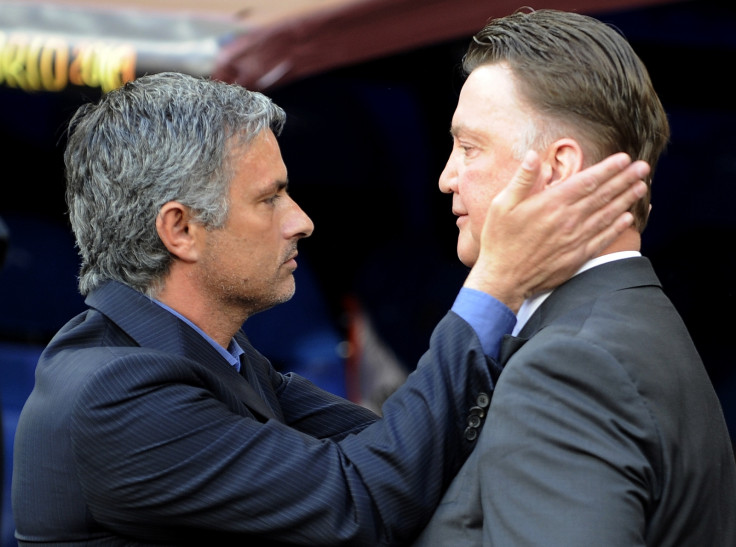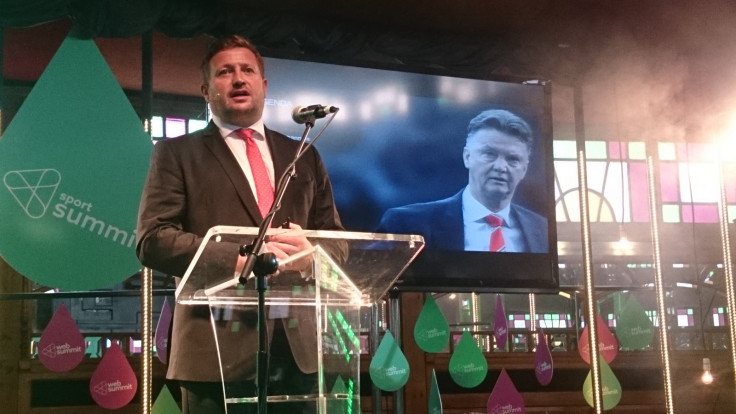Manchester United: Despite Twitter Backlash Social Media Goes 'Off the Chart' With 1 Billion Followers

Manchester United's social media engagement levels went "off the chart" after they suffered their worst season for years last season, according to the club's managing director, Richard Arnold.
Speaking at the Web Summit in Dublin on Tuesday 4 November, Arnold was very clear that everyone's priority at the club is the team's on-field performance, but highlighted that to deliver on the pitch, they've got to have the best players.
However, the money for those players comes in part from how well he does in marketing the club. And engagement with their fans is a key part of their marketing.
Arnold believes the key to social media success for the club is in doing five things really well: localisation, understanding what's culturally appropriate, ensuring everything is optimised for different devices, analysis and listening, and providing the content that the fans want.
But is the old adage that all publicity is good publicity true?
Lessons learned from Twitter backlash
Even the biggest club in the world haven't escaped the perils of social media, as a recent backlash from their own fans on Twitter demonstrated.
The club was hit by a stream of negativity in response to a tweet that compared the number of Google searches for Louis van Gaal and Jose Mourinho, suggesting because the Manchester United manager was the more Googled of the two, he had achieved some sort of victory over his Chelsea counterpart.
Fans responded with tweets about how embarrassing and cringeworthy the tweet was. That's surely not the response the football giants are aiming for, particularly given Arnold's view that knowing the fans and providing them with the content they want is a crucial part of their social media strategy.

So "off the chart" engagement in times of trouble doesn't necessarily mean all is rosy in the garden. Volume of discussion about the brand would almost certainly be expected to rise during such turbulent times. Add that to the fact that @ManUtd only sent their first tweet on 10 July 2013, and a surge in social media engagement for the club was almost inevitable last season.
There's no denying the scale of discussion about United online. They are the most talked about club in the world when it comes to social media, with Arnold quoting a weekly average of 1.3 million mentions, even more than Rhianna or Justin Bieber receive.
Such volume will inevitably result in a certain amount of negativity, particularly from fans of rival clubs. But does United need to start worrying about their online performance as well as their on-field performance, when their own fans start to turn on the club because they haven't delivered on the very thing Arnold has said they must do well?
Late adopters and social media faux pas
Arnold admits the club are not always first in line to adopt new platforms. Their Facebook page launched in 2010 but it was three years later before the club ventured further afield into Twitter. Yet, the managing director claims this bedding down period was used to ensure they were confident in their content, their engagement and their measurement. He said: "You don't need to be first if you have the right discipline and the rules to engage".
This recent tweet is not the first social media faux pas by the footballing giants. David Moyes' appointment as manager was prematurely announced on Facebook last year and their Twitter account was reportedly hacked in December when the tweet "#MoyesOut" appeared, and quickly disappeared.
Other Twitter errors include getting the scoreline wrong when tweeting about a historic European victory against Benfica, and even mistakenly crediting the wrong person with a Chicarito Hernandez goal.
Yes, volume of conversation about the club is sure to be a priority, but as any social media expert will tell you, it's not all about the numbers. Maybe you can't please all of the people all of the time, but it seems even the biggest club in the world is not immune from social media gaffes and backlash.
© Copyright IBTimes 2025. All rights reserved.






















